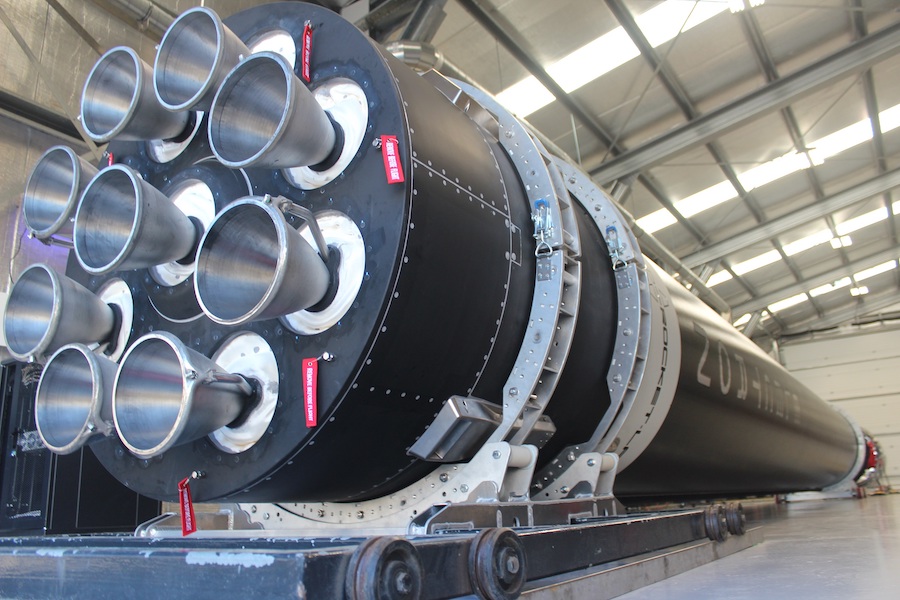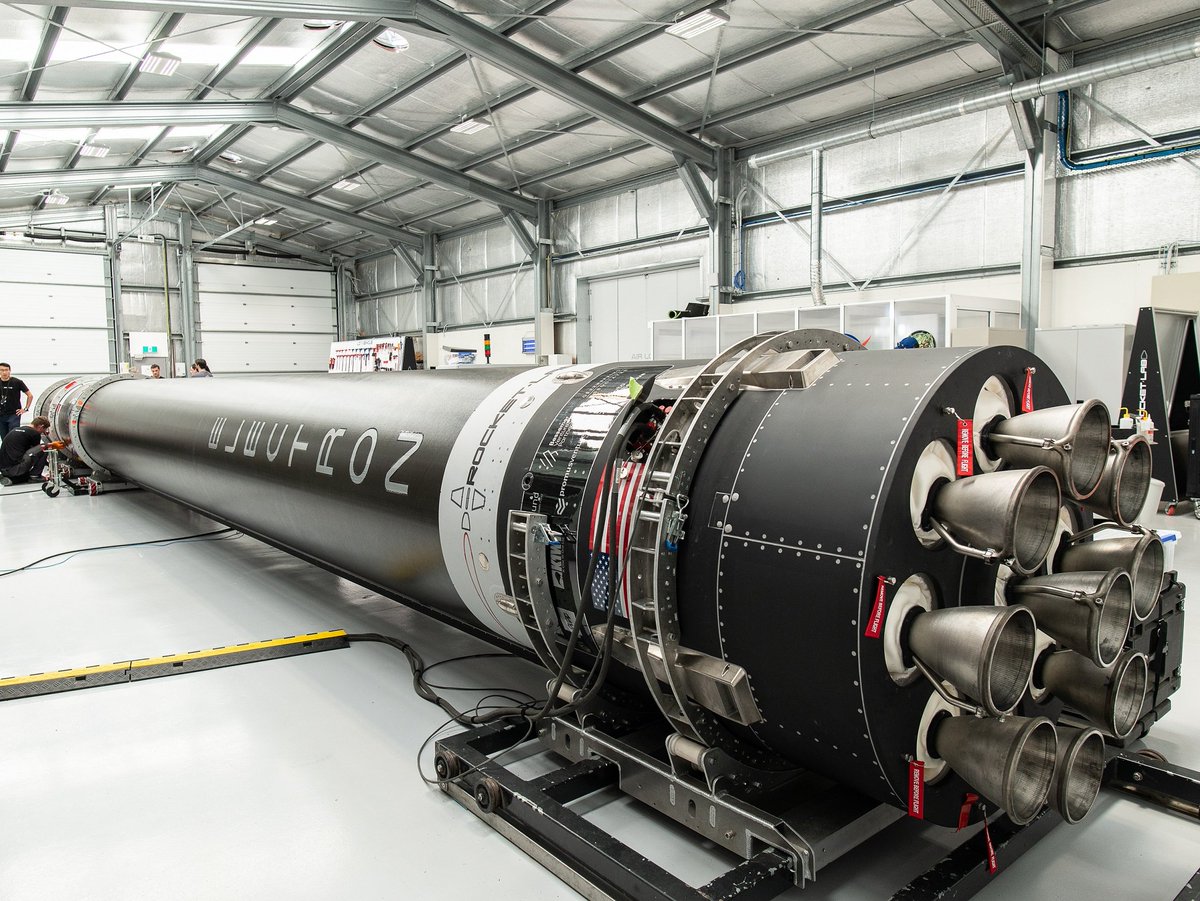
Rocket Lab’s Most Recent Crucial Acquisition Of SolAero Holdings
Rocket Lab has continued to make impressive progress through launching Electron and more. As the company works towards even more ambitious ideas including catching Electron’s booster and developing Neutron, they also have been acquiring different companies. This has been a common theme of Rocket Lab over the last few years and just recently they did it again.
Just recently Rocket Lab acquired SolAero Holdings, Inc, a company that develops and manufactures space solar power products. This is meant to become another asset to Rocket Lab in the long run. Here SolAero gets access to Rocket Lab’s extensive resources and Rocket Lab gets access to consistent and high-quality components benefiting each party. All of which are important for the success of both Rocket Lab and SolAero.
This specific acquisition is very interesting for many reasons. As we know Rocket Lab most often launches to low Earth orbit with Electron. However, the company has additional capabilities thanks to third stages such as Photon and more. In addition, they also work with unique payloads and different mission requirements, all of which could benefit from this most recent acquisition.
What Is SolAero?

Before taking a closer look at SolAero and what it means for Rocket Lab’s future, it’s important to know exactly what an acquisition is. In this case, an acquisition is defined as a scenario where one company purchases most or all of another company’s shares to gain control of that company. Just a few months ago this exact scenario happened with Rocket Lab and SolAero. Specifically, on January 18th, this year, Rocket Lab announced they had closed the previously-announced transaction to acquire SolAero Holdings, Inc. This cost the rocket company around $80 million. SolAero is a premier supplier of space solar power products and precision aerospace structures for the global aerospace market.
The acquisition aligns with Rocket Lab’s growth strategy of vertical integration to deliver a comprehensive space solution that spans spacecraft manufacture, satellite subsystems, flight software, ground operations, and launch. As one of only two companies producing high-efficiency, space-grade solar cells in the United States, SolAero’s space solar cells are among the highest performing in the world and support civil space exploration, science, defense and intelligence, and commercial markets. In combining with Rocket Lab, SolAero will tap into the Company’s resources and manufacturing capability to boost high-volume production, making high-performing space power technologies available at scale. Founded in 1998 and headquartered in Albuquerque, New Mexico, SolAero’s solar cells, solar panels, and composite structural products have supported more than 1,000 successful space missions with 100% reliability and mission success to date.
Over the past two decades, SolAero’s products have played key roles in some of the industry’s most ambitious space missions, including supplying power to NASA’s Parker Solar Probe and Mars Insight Lander, the largest solar array ever deployed on the surface of Mars, and several Cygnus Cargo Resupply Missions to the International Space Station. SolAero also led the development and manufacturing of the solar panel on Ingenuity, the helicopter that successfully flew on Mars in April this year, marking the first-ever powered, controlled flight on a planet other than Earth. SolAero technology has also made commercial constellations possible, providing power to OneWeb’s broadband constellation. Most recently, SolAero has been selected to supply Solar Power Modules for the Power and Propulsion Element of NASA’s Gateway as part of NASA’s Artemis lunar exploration plans, which will enable future missions to Mars.
Impact On Rocket Lab

Its obvious Rocket Lab acquired SolAero for many reasons including working towards the company’s strategy and continued acquisitions. As I mentioned prior this is a common theme over the past few years with Rocket Lab. They are continuing to acquire smaller companies that develop everything from solar panels to flight software and more. In this most recent case, it was mentioned that “SolAero has established itself as a premier provider of solar technologies and we are very excited to be joining forces,” said Rocket Lab founder and CEO, Peter Beck. He also pointed out, “SolAero is a highly complementary addition to Rocket Lab’s vertically integrated business model, enabling us to deliver complete space mission solutions for our customers. With more than 1,000 successful missions under their belt, the team at SolAero have enabled trailblazing missions, providing space solar power solutions for the James Webb Space Telescope, and missions on Mars including InSight and Ingenuity. We are thrilled to be combining our innovative teams, industry-leading technologies, and strong resources to enable our customers to achieve incredible things in space.” One of the most important parts of these quotes talks about acquisitions like the one with SolAero helping Rocket Lab deliver complete space missions solutions for their customers. It’s clear that Rocket Lab wants to do a lot more than just launch satellites for different companies.
These acquisitions allow Rocket Lab to provide many different crucial services and components for each part of the manufacture and launch process. This in return makes Rocket Lab more appealing to different types of customers with specific needs. In addition, after the acquisition, SolAero President and CEO, Brad Clevenger said, “We are very excited to join the outstanding team at Rocket Lab and contribute to their track record of innovation and on-orbit success,”. He also mentioned, “We look forward to becoming an integral part of Rocket Lab’s Space Systems business while continuing to offer all of our customers premier capability and value.” This acquisition is meant to not only benefit Rocket Lab but SolAero as well. Looking at the numbers, the addition of SolAero’s 425-strong team brings Rocket Lab’s total headcount to more than 1,100 employees across its space manufacturing complexes, test facilities, and launch sites in California, Virginia, Colorado, Maryland, Toronto, New Zealand, and now Albuquerque, New Mexico. The SolAero team will continue to be led by President and CEO Brad Clevenger at SolAero’s 154,696 square foot production facilities in Albuquerque, New Mexico. This adds to Rocket Lab’s current portfolio as the SolAero merger follows on from the acquisition of space software company ASI Aerospace LLC in October 2021, spacecraft separation systems company Planetary Systems Corporation in December 2021, and satellite components manufacturer Sinclair Interplanetary in April 2020. SolAero is a massive company that is now a part of Rocket Lab going into the future. SolAero is confident in their products and what they have to offer to the space industry and specifically Rocket Lab. We are likely to see even more acquisitions of different companies in the near future as it seems Rocket Lab has no plan of slowing down.
Conclusion
Over the past few years, we have seen Rocket Lab start and continue to acquire different companies within the space industry. This includes companies that develop and manufacture solar panels, flight software, reaction wheels, and much more. All of which helps Rocket Lab get access to a quality product and these smaller companies Rocket Lab’s resources. Most recently Rocket Lab acquired SolAero, a large company based around solar panels. This was a big deal and expanded Rocket Lab’s team and company significantly. We will have to wait and see what the partnership develops and the impact it has on the future of the space industry.
